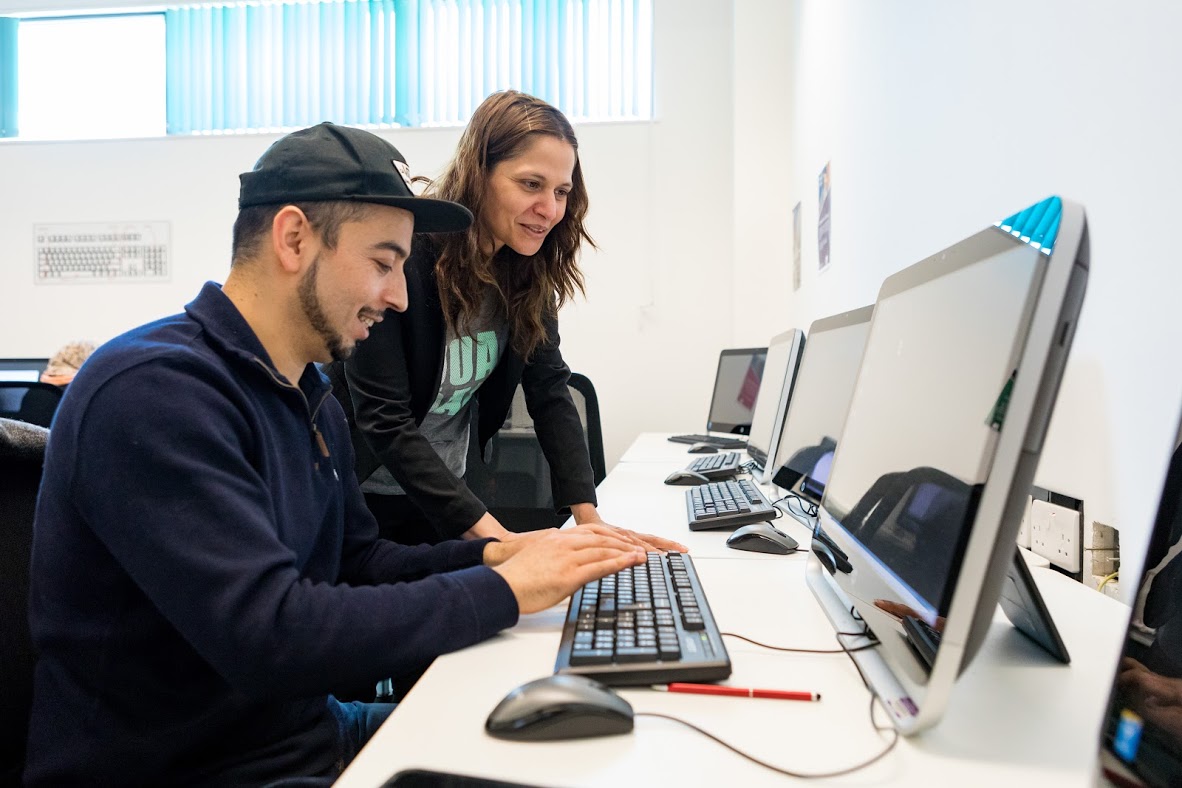My QTLS experience: Angela Morris
My current role is to deliver a history and sociology courses to international students at Wroxton College, which is the British campus of an American university (Fairleigh Dickinson University).
What was your motivation for undertaking QTLS?
Having recently completed a PGCE I felt that undertaking QTLS was a natural and complementary step in my professional development. Similar to my motives for undertaking a PGCE, although I was and am happy in my current role, I was also keen to keep my options open should interesting opportunities present themselves in the future and I know that having QTLS will give me a greater range of career options in different sectors. I also felt that having QTLS would enhance my confidence as a teacher and reinforce many of the new skills acquired while I completed my PGCE.
What did you like about it?
I didn’t expect to enjoy the process at all, but I did! I felt it was very positive and affirming: I tested the knowledge and skills acquired during the PGCE and had the opportunity to re-evaluate in a fresh light. I felt that the whole process boosted my confidence and help me to better understand the methods, theories and processes I had already learnt. It also enabled me to delve deeper into some aspects of teaching theory and test its application in the classroom.
How has it benefited you as a teacher and, as a result, your learners?
One of the areas I focused on during my professional development was formative assessment, which I felt I could use to better effect in my lessons. During the process I trialled different techniques and considered how each enhanced my ability to deliver lessons that focused more exactly on my students’ specific needs. I felt my learners benefited from my experimentation and I have continued to use the most appropriate and successful techniques in my lessons.
What impact has it had on your practice and your learners?
I trialled various formative assessment strategies with my learners, implemented appropriately pitched in-class activities, based on Webb’s Depth of Knowledge levels and re-evaluated gaps in my own subject knowledge. One formative assessment strategy I used to great effect was a ‘quick write’ task to help prepare the students for their forthcoming exams. The process proved illuminating to both student and teacher: students gain a lot of reassurance and confidence after completing this task and often surprise themselves with how much they can remember from the course. Those that struggle to recall material can be quickly identified and supported in the lead up to the exam.
What impact did it have on your organisation?
I felt the process fostered a closer professional relationship with my colleagues and encouraged greater discussion about our teaching strategies, such as our formative assessment techniques. In particular, I felt that the professional discussion that formed part of this process particularly supported a colleague new to teaching who was keen to garner ideas and reassurance. One of the lasting effects of the QTLS process is that we have agreed, moving forward, to have regular meetings to discuss our teaching strategies and our wider subject-specific research.
What have you learned about yourself?
I felt the QTLS process enhanced my confidence as a practitioner. Although I entered the process as an experienced teacher, I am conscious that research in our field is constantly evolving and that new and fresh practice can enhance one’s ability to reach learners. I felt that undertaking QTLS allowed me to examine and test theories and practice I wanted to explore further.
What support did you have from your supporter?
My supporter was amazing. She gave reassurance and support throughout the process and practical support (suggestions for reading, for instance). She even wrote my supporting statement while she was on holiday!
How did your colleagues support you throughout the process?
My colleagues were incredibly supportive and helpful throughout the process. One, whose teaching style I admire, allowed me to observe her lesson and offered to observe one of mine and provide feedback. I met with colleagues to discuss the QTLS process (I even found that just by explaining the process to others helped me to evaluate what I was doing!) and stimulated a fascinating discussion of formative assessment techniques.
What do you want to do next and how will you continue to develop your practice?
I hope to continue to test and trial different formative assessment methods to keep my practice fresh and interesting and continue to implement appropriately rigorous in-class activities based on Webb’s Depth of Knowledge. I would also like to continue to address areas of my own subject specialism I feel I could develop further.
What advice would you give teachers/trainers who are thinking about undertaking QTLS?
I really do feel that the process had a positive impact on my practice and my learners. I feel that any reflection on one’s own teaching has a beneficial impact, and that however long we have been teaching or however experienced we are, it is good to consider what we are doing, why and how we could improve still further; QTLS certainly complements that process and is a status I believe is suited to the reflective teacher.
I have found SET to be incredibly helpful throughout the process – in dealing with technical enquiries, offering advice on completing the workbook, and by providing interesting and stimulating webinars. While my membership of SET is connected to me being awarded QTLS, I feel the organisation offers a great service to practitioners at all levels within education.

check your eligibility and apply for QTLS QTLS - Professional Formation
QTLS is the badge of professionalism for post-14 education and training. It’s aimed at helping you advance your career and to demonstrate your expertise and experience to your colleagues, employers and learners.
Find out more about QTLS
